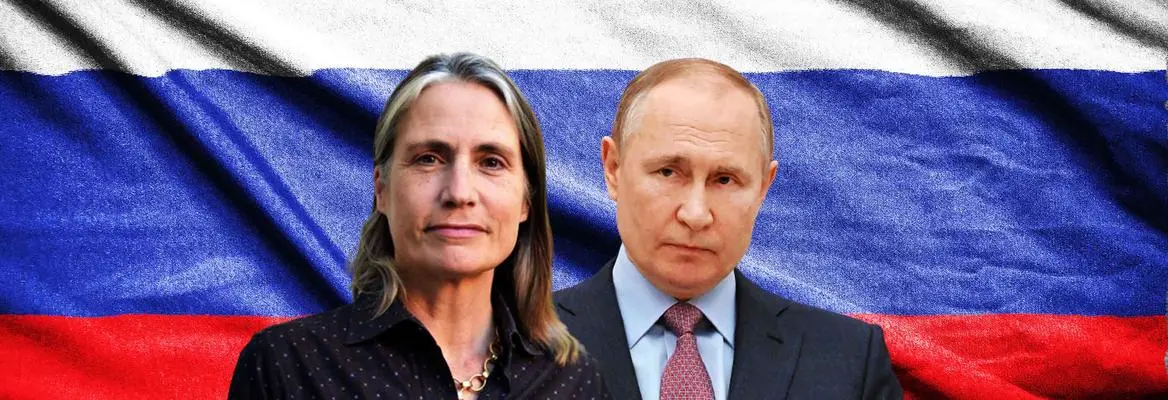Fiona Hill met Vladimir Putin several times as senior advisor to three U.S. presidents. In this unique interview with the Institute of Art and Ideas, Dr Hill explains Putin’s multiple identities, how he views NATO, why John Mearsheimer’s school of realism and international relations theory fails to explain the invasion, and what our strategy should be towards China and Taiwan.
People tend to have a very specific view of who Vladimir Putin is. Some say that he is an imperial strongman, others that he is a leader rationally defending his country’s self-interests, and some that he is a dictator gone crazy. However, you have argued that Putin is best understood as a composite of multiple identities. What finally led you to this conclusion after meeting him several times?
Public figures always have motivations ascribed to them, and, to be frank, observers tend to project their own views, opinions and perceptions from a distance. Often they hone in on the most obvious attribute. But no-one is one dimensional. Everyone is multifacted, and most people are products of their time and place. When you are in closer physical proximity to someone and have the chance to observe them in action, its easier to see that. Vladimir Putin is not that extraordinary for someone of his generational cohort and from his particular background. What is extraordinary is how he has risen to the top of Russian politics and managed to stay in place for such a long time. Determining which personal and professional attributes have enabled him to do so is the key to understanding him and how he operates.
Why are so many under the misapprehension that Putin occupies one specific identity and how does the view that Putin has multiple identities shed light on his moves in Ukraine?
Putin is someone who is driven by many factors—in the case of Ukraine, his views are rooted in personal perspectives and biases, and shaped by his experience of events and his interpretations of Russian imperial and Soviet history. He is quite explicit about all of this, and his views have broader resonance in the political group around him. Putin grew up in the Soviet Union and he experienced Ukraine as part of “his” country. He has never been able to conceive of Ukraine as a separate country despite more than 30 years of independence, and his mental map of “Russia” includes Ukraine and other predominantly Slavic-settled territories that the Russian Empire conquered and incorporated over centuries of expansion. Putin has a very deterministic idea of identity, focused on language, religion, culture, and history. He believes that if you speak Russian, and were part of the historic Slavic core of the Russian empire, then you are Russian. He also has a historical-legalistic view of what constitutes Russia. He believes that any territories conquered by Russia in its imperial wars, or lands that were ceded by treaty to Russia by other European powers, are also Russian. Might makes right historically in his view. For Putin, this history of territorial conquest counts more than international law and the post-1945 prohibition against war and the use of force enshrined in the UN Charter.
Notable foreign policy realists, such as John Mearsheimer, have argued that the West caused Putin’s invasion of Ukraine by a series of provocative foreign policy stances. What do you have to say to this analysis?





















Join the conversation